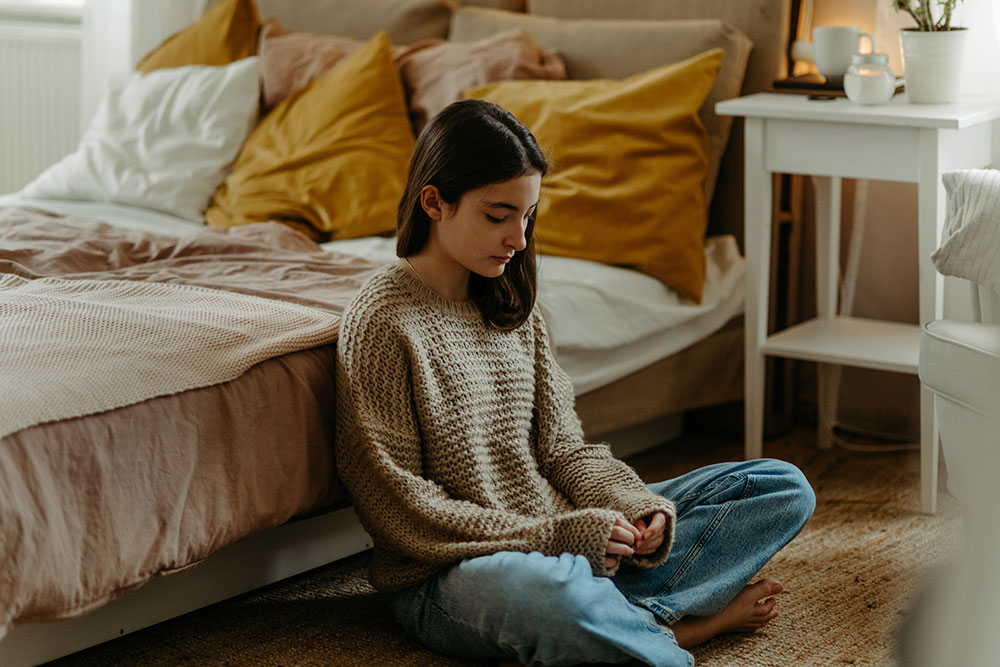Imagine yourself getting ready for your day. As you get out of bed and jump in the shower, do you find yourself thinking about how busy the week has been and all the things that need to be done around the house? Or are you feeling a deep sense of dread, but you can’t quite figure out why? Your stomach feels nauseous, and you haven’t been able to sleep because your mind never turns off? Both stress and anxiety seem similar because they are part of the same response system in our body when dealing with a perceived threat. How do you know if how you feel is stress or ongoing anxiety? It can be hard to tell. Here are some things to consider.
Stress is most often related to a specific situation or circumstances in your life and is short term. For example, you are in school and have two exams and a paper due in 3 days. You feel pressured and stay up late to study. During this time, you experience tightness in your neck and shoulders and find yourself more irritable than normal. Once the tests are done and the paper has been submitted, you feel much better and can now enjoy time with your family and friends.
While anxiety can have very similar symptoms to stress, it is usually more generalized (not focused on one specific event or circumstance) and will linger longer than stress. Many times, a person with anxiety will say they don’t know why they feel worried or can’t sleep. Anxiety shows up in a variety of ways and is different for each person. Irritability, upset stomach, difficulty falling or staying asleep, excessive worry, and feeling like something bad is about to happen are all symptoms of generalized anxiety.
Everyone will experience stress or anxiety at some time in their life. Here are some quick tips to manage your symptoms. First, know that stress and anxiety can often bring with it a range of unpleasant physical symptoms. If you find your heart beating fast or have trouble taking a deep breath, find a way to slow down that works best for you. This could look like:
- Focus on breathing with intention.
- Engage in box breathing – https://www.youtube.com/watch?v=tEmt1Znux58
- Talk to a trusted friend/family member.
- Move your body by engaging in some enjoyable physical activity.
- Briefly place your face in cold water.
It can be hard to decide when to seek help for your symptoms. A good rule of thumb is if your symptoms are impacting your everyday life or are getting in the way of taking care of yourself. Seek the advice of your PCP or a behavioral health practitioner. Most people experience symptoms of stress or anxiety at some time in their life and both respond well to treatment. Just know that how you feel does not have to take over and you can find ways to take control of your thoughts and feelings!



